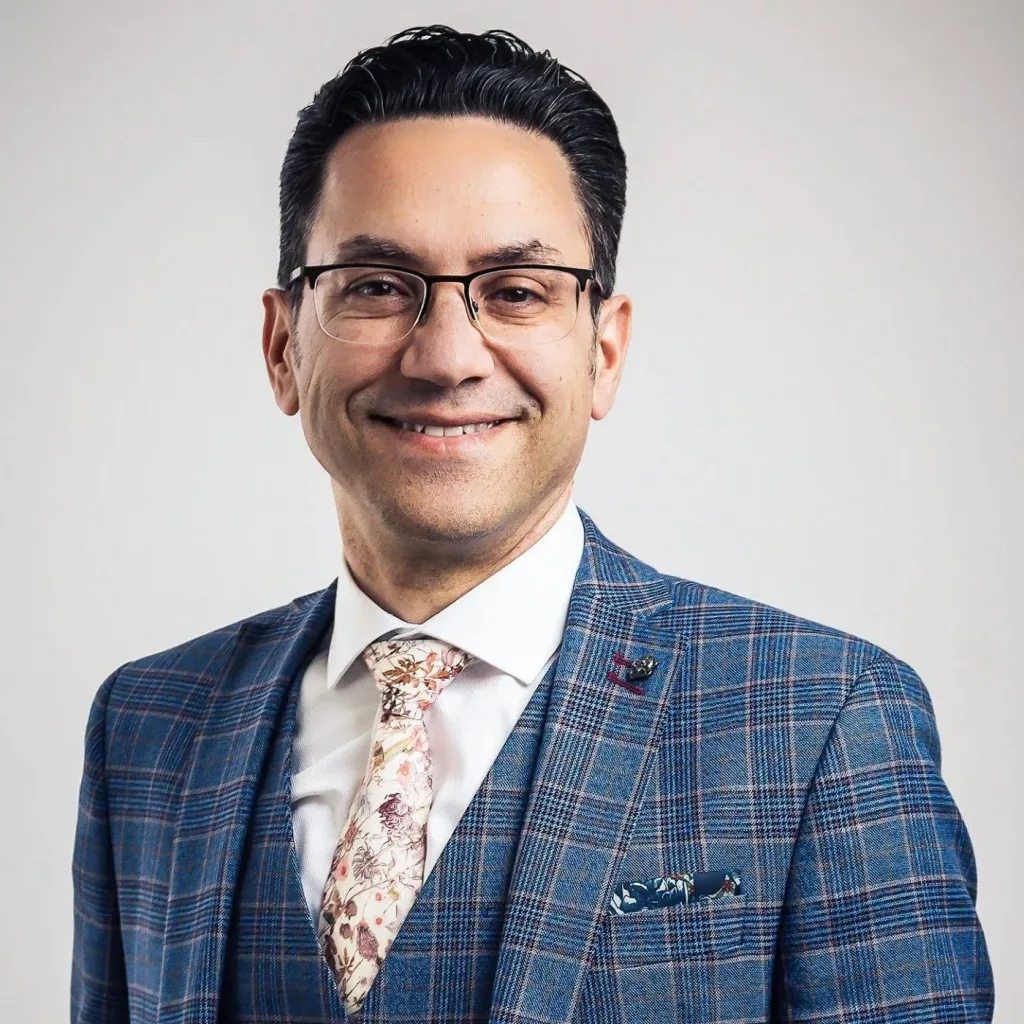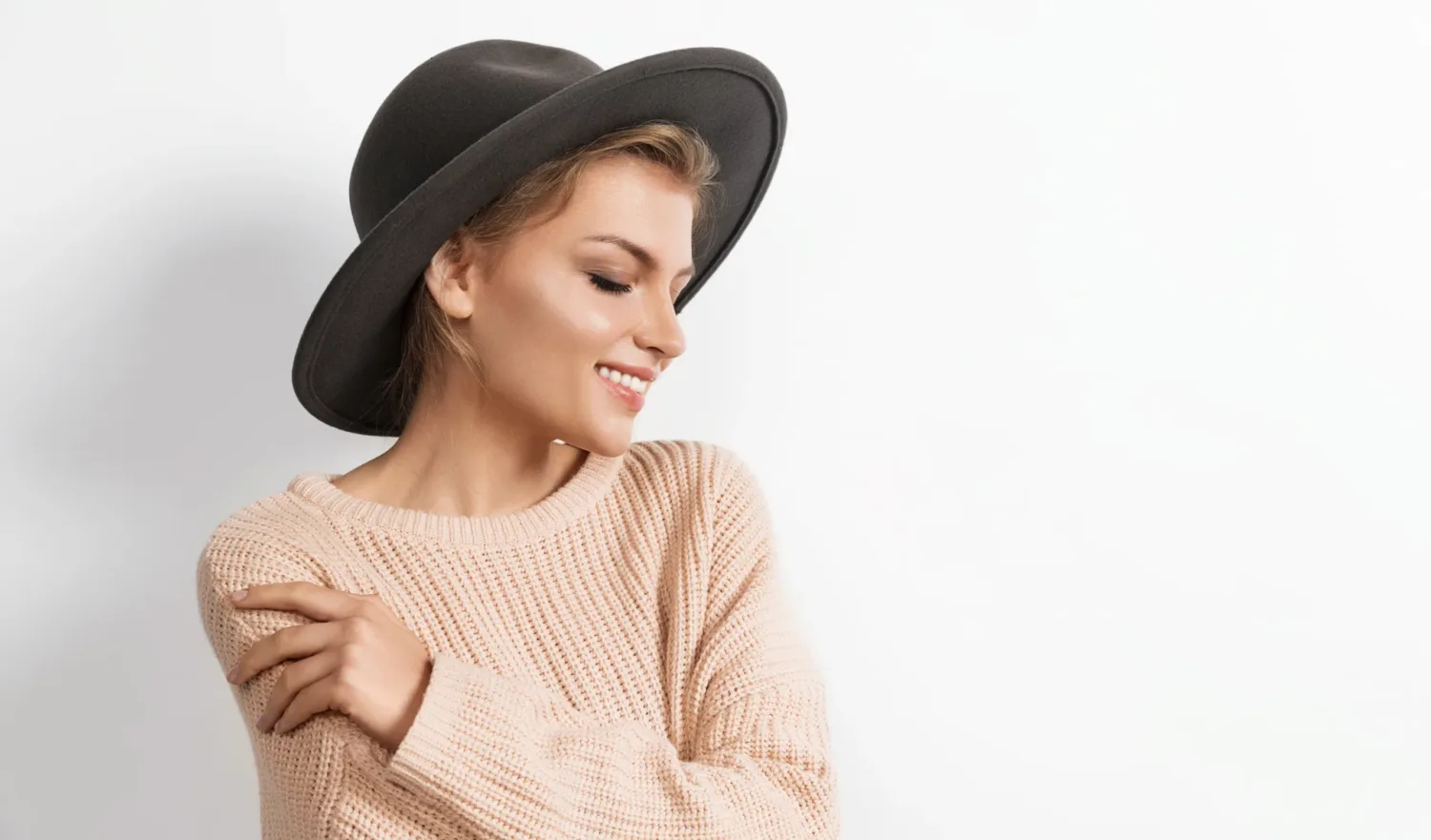Rosacea is a long-term skin condition affecting the face, characterised by facial redness or flushing of the skin. Some types of rosacea can also cause bumps on the skin, similar to acne breakouts.
Patients seek to manage the condition with medication, topical creams, and cosmetic treatments, such as laser treatments, as there is no cure for rosacea.
The Fotona SP Dynamis laser can treat several aspects of rosacea that patients commonly suffer with, minimising the appearance of broken capillaries, treating acne breakouts, reducing redness and pigmentation, and removing dead skin.
About Our Rosacea Laser Treatments in London
At the CREO Clinic, we offer bespoke rosacea treatments for our patients by understanding your skin’s equally unique needs. Whether you are dealing with facial redness and inflammation or need to target active acne breakouts, our specialists in London understand that each patient is different and work to tailor our rosacea treatments accordingly.
Contact the CREO Clinic today to book a rosacea consultation with our specialists and see how laser treatment can treat your rosacea and improve the appearance of your skin.
What is Rosacea?
Rosacea is a very common skin condition that a range of different factors can cause. It is usually characterised by redness of the skin on the face and is more common among those with lighter skin tones.
Some patients develop additional symptoms, with the rosacea turning darker in colour and the skin feeling lumpy in texture. Other symptoms include:
- Burning and stinging sensations in the face
- Dry skin
- Dilated and visible blood vessels
- Spots, bumps, and/or pustules that resemble acne
- Painful swelling and infection in and around the eye area
- Sensitivity to light
Laser Treatment for Rosacea
Laser treatment for rosacea can vary from patient to patient due to the condition’s multifaceted nature. Some of the more prominent symptoms of rosacea can be treated using lasers, including visible blood vessels, redness, and acne breakouts.
The Fotona Nd: YAG laser uses different pulse durations to target different layers of the skin. Laser light is absorbed by the haemoglobin in red blood cells to break them down, collapsing and reducing the appearance of the superficial blood capillaries.
The laser can then be used to target particular spots, bumps, or boils and to improve and even out the pigmentation of the skin. Because it is not surgical, we consider it part of a non surgical facelift.
Most patients can then enjoy an instant and long-lasting boost in their skin’s appearance and texture.
Read Our Patient Reviews
How Much Does Laser Treatment for Rosacea Cost?
The price of rosacea treatment with the Nd:YAG laser depends on the areas requiring treatment and the number of sessions booked. For the full face, single sessions start from £425, with a package of three sessions starting from £1,095. If you only require treatment on half the face, a single session starts from £325, with a 3-session package starting from £875.
To spread the cost of rosacea laser treatment, we offer financing with our partners, PLIM. Speak to our patient coordinator for more information.
How Many Sessions Will I Need?
It is generally recommended that you undergo three laser therapy treatments 4-6 weeks apart for the best possible results. Following this, it is advised that you undergo maintenance treatments every 6-12 months to manage your symptoms.
What to Expect
Below, you can read the process for undergoing rosacea treatment at the CREO Clinic:
Consultation
Before undergoing laser therapy treatment for rosacea, our clinicians will conduct a thorough consultation to assess your suitability for intense pulsed light therapy. This will include checking any health conditions, medications you take, and allergies you have.
In addition, you will be asked about your main areas of concern so that our clinician can assess whether laser treatment is the best option for you.
Should you wish to proceed with laser therapy treatment, our clinicians will carry out a test patch to ensure that your skin can tolerate the laser.
Treatment
As rosacea treatment is bespoke, the exact treatment protocol will depend on the type and symptoms of rosacea you are experiencing. For example, our laser is able to target flushing or redness in the skin, thread veins, spots and/or thickening of the skin on the nose. Overall, treatment typically takes 60-90 minutes to complete.
Recovery & Results
After your rosacea laser treatment, your skin will feel and appear clearer and less reactive to external stimuli. We will provide thorough aftercare instructions to ensure a smooth recovery period. You will need to avoid excessive sun exposure and wear high-factor sunscreen for at least the first two weeks after treatment.
Depending on the type of rosacea symptoms you have targeted with your treatment, you can expect the following results:
- Reduced broken and visible blood vessels and capillaries in the face
- Reduced acne breakouts
- Improved redness and pigmentation
- Removed dead skin from the skin’s surface
Results are typically seen after 4-6 weeks and we recommend undergoing a minimum of three sessions, followed by additional sessions every 12-18 months to maintain improvements.
Why Choose CREO Clinic
At the CREO Clinic, we provide doctor-led laser treatments by expert clinicians.
With a focus on transparency and medical expertise, we take the steps needed to ensure that our patients feel comfortable throughout their time with us, all while achieving exceptional results.
Related Treatments
Laser Acne Treatment (Twin Light)
Acne is a common skin condition that can cause great aesthetic concern for patients. For those struggling with acne, Fotona’s Twin Light protocol offers a way of treating both the active acne as well as scarring from previous breakouts. Twin Light combines the power of the Nd:YAG laser to treat the sebaceous glands, while the Er:YAG wavelength gently resurfaces the skin.
Frequently Asked Questions
What causes rosacea?
What are common symptoms of rosacea?
What are the four stages of rosacea?
Pre-Rosacea – Patients experience blushing and increased redness in temporary bouts that are caused by a particular trigger, e.g., aerobic exercise, certain foods.
Mild Rosacea – Facial redness lasts longer after a trigger is over as blood vessels remain open. This typically lasts 30 minutes or more. Some structural damage may also be visible at this stage.
Moderate Rosacea – Bouts of increased redness persist longer than the presence of a trigger for days and even weeks. Patients may also experience swelling, inflammatory papules, or pustules. Blood vessels at this stage can show different levels of structural damage.
Severe Rosacea – A few rosacea patients can progress to the most severe form, with serious, intense bouts of facial flushing, significant inflammation and swelling, pain, and burning around the face. Widespread damage to the blood vessels can be observed at this stage.
What are the different types of rosacea?
1. Erythematotelangiectatic Rosacea – Presents as persistent redness on the face as small blood vessels become larger and more visible. Symptoms typically flare up and then disappear. Without any treatment, redness can become more persistent, cover more skin, and become permanent.
2. Papulopustular Rosacea – Associated with whiteheads (pus-filled blemishes) and red, swollen lumps, typically appearing on the cheeks, chin, and forehead. Redness and flushing may also be present.
3. Phymatous Rosacea – Causes skin thickening and scarring, leaving bumps, swelling, and discolouration. This is a rare form of rosacea, resulting in a bulbous nose, and appears more frequently in men.
4. Ocular Rosacea – Affects the eyes, causing a bloodshot and watery appearance and an irritated or burning sensation. This can cause cysts to develop on the eyelids and lead to dry, sensitive eyes.




